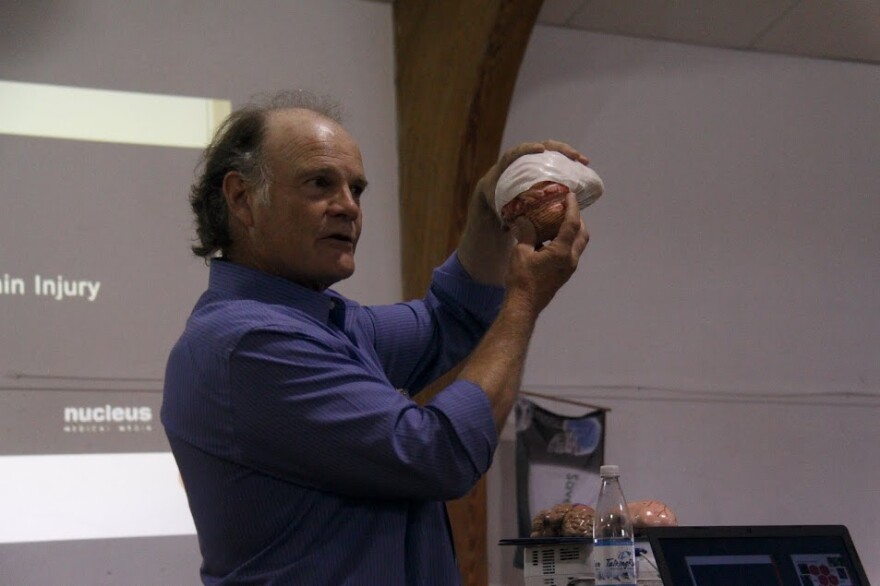Public health officials want more people to take the risk of concussions youth sports more seriously.
On Tuesday night, Kalispell Regional Healthcare’s Save the Brain Project tried to get the word out at Somers Middle School.
Fewer than 10 people showed up.One of them was Briana McGrath, a PE teacher and volleyball and basketball coach for several a schools in the area. She says coaches are changing the way they react when players get hit on the head.
"When I first started playing sports it was like, 'what you’re fine, get over it,' and as I started getting into coaching it was that same mindset. 'Oh, you’ll be okay. How do you feel? You feel good? You can go back in,'" McGrath says.
"And this year I’ve had one particular, while I was going through all of this I thought, oh my gosh, this kid had a concussion; I know if for sure. I took extra precaution for him, and I kind of felt slighted when his parents were like, 'oh he’s fine.' It really takes a lot for me to see this and realize that I need to do better. I need to help these kids get the help that they need.”
In 2013 the Montana legislature saw the need to protect the brains of student athletes. The Dylan Steigers Protection of Youth Athletes Act was named after a Missoula football player who died in 2010 after a hit to the head.
The law requires schools to give student athletes and parents information on concussions before starting practice. And if an athlete receives a concussion during a game, that athlete can’t return to play until they have a written note from a health care provider.
Save the Brain’s Paul Coats says the stigma around concussions and mindset set of 'oh just shake it off' will hopefully change with education.
“There are all kinds of pressure. So there are people that are worried about their scholarship for football, basketball, whatever the sport has to be. They are worried about stigma. There is very still the macho factor still at play in Montana of, 'ah just suck it up, get back out there its only a ding.'”
Last night, Coats explained why concussions are such a big deal with kids.
“The seven year old brain - I need to get out more - but it’s beautiful. It's really beautiful. It's plump, it's voluptuous, it just fills up the skull right to the edge of the bone. And you saw how the brain floats in fluid. There is so much brain in that young skull that there is not much fluid there.”
When a young brain gets tackled, knocked on the playground or hit by a soccer ball there isn’t much fluid to protect it, so the brain can slam into the skull.
That’s what happened to 12-year-old Bennett Dykstra, in third grade, and again in fourth grade, and again this winter.
“Well, I got two of them playing soccer and the last one skiing," Dykstra says.
After his first concussion Dykstra missed three weeks of school. He was dizzy a lot and spent the whole summer resting.
Now that Dykstra has had three concussions, his parents won’t let him play soccer. And he misses a lot of other activities too.
"It’s still kind of hard to play when the rest of the kids are playing. Like sometimes in PE when they’re doing soccer or frisbee sometimes, I can’t do it because I might get hit in the head again.”
Dykstra‘s mom Lynn says his symptoms are gone.
“But I definitely think he still struggles. He had symptoms after this last concussion until maybe a month ago. And we did some physical therapy stuff again. He tell me that the kids make fun of him because there are certain activities that he can’t participate in. I think some didn’t understand it, and I think some kids are not very understanding and teasing.”
Save The Brain project plans on presenting to coaches as well as students in the fall, when school sports start up again.
Visit Kalispell Regional Medical Center's Save the Brain page for more information on concussions and concussion symptoms.


